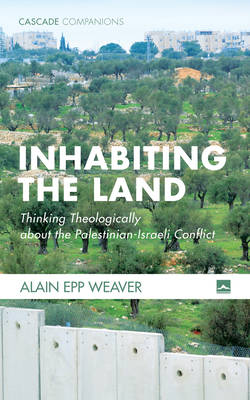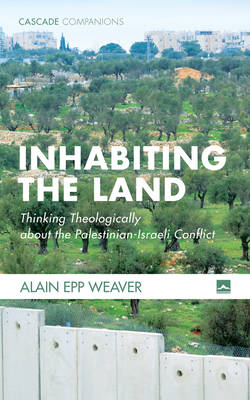
- Afhalen na 1 uur in een winkel met voorraad
- Gratis thuislevering in België vanaf € 30
- Ruim aanbod met 7 miljoen producten
- Afhalen na 1 uur in een winkel met voorraad
- Gratis thuislevering in België vanaf € 30
- Ruim aanbod met 7 miljoen producten
Zoeken
€ 58,45
+ 116 punten
Uitvoering
Omschrijving
What does it mean to inhabit the land of Palestine and Israel justly? How should Christians understand the Palestinian-Israeli conflict? Alain Epp Weaver examines answers to these questions, paying particular attention to the theologies of sumud, or steadfastness, advanced by Palestinian Christian theologians, while also presenting other Christian, Jewish, and Muslim responses. Contextualizing these theologies within Palestinian and Israeli Jewish histories, Epp Weaver introduces readers to the intertwined histories of Zionism (as a movement to establish a Jewish state and renew Jewish life in the biblical land of Israel) and Palestinian nationalism. He also situates Palestinian Christian theologies within broader Christian conversations about election, God's enduring covenant with the Jewish people, and Zionism. In the face of a politics of separation and dispossession, Epp Weaver contends, Palestinian Christian theologies testify to the possibility of a shared polity and geography for Palestinians and Israeli Jews not defined by walls, militarized fences, checkpoints, and roadblocks, but rather by mutuality and reconciliation.
Specificaties
Betrokkenen
- Auteur(s):
- Uitgeverij:
Inhoud
- Aantal bladzijden:
- 148
- Taal:
- Engels
- Reeks:
- Reeksnummer:
- nr. 39
Eigenschappen
- Productcode (EAN):
- 9781498294324
- Verschijningsdatum:
- 30/08/2018
- Uitvoering:
- Hardcover
- Formaat:
- Genaaid
- Afmetingen:
- 127 mm x 203 mm
- Gewicht:
- 272 g

Alleen bij Standaard Boekhandel
+ 116 punten op je klantenkaart van Standaard Boekhandel
Beoordelingen
We publiceren alleen reviews die voldoen aan de voorwaarden voor reviews. Bekijk onze voorwaarden voor reviews.











